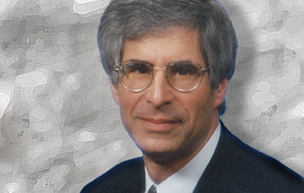One of the smartest things the framers of the United States Constitution did for the future of the government they were designing was to both mandate freedom from state-sponsored religion and freedom to choose one’s own form of worship.
These principles were concisely summed up in a single phrase in the First Amendment, “Congress shall make no law respecting an establishment of religion, or prohibiting the free exercise thereof; …” Unfortunately the “establishment” clause has recently been eroded by the conservative majority on the U.S. Supreme Court and is likely to be further eroded in Carson vs. Makin, a case originating in Maine.
The framers weren’t operating in an historical vacuum. They were among the most informed, traveled and experienced men of their era. And they were fully aware of a clear lesson taught by history: that mixing religion with the muscle and money of state power tends to create a toxic brew of intolerance, persecution and violence. They were doubtless mindful of the century-and-a-half of European religious warfare which raged between Catholics and Protestants from the early 1500s through the mid-1600s.
Carson arises from a Maine statute that requires communities without a public secondary school — numbering over half of Maine’s 260 school administrative units — to provide tuition assistance for their students to attend a public school in a nearby district or an approved private school of their parents’ choosing. To qualify, however, the private school must meet basic state curriculum requirements and be “nonsectarian,” consistent with the state’s policy of providing a religiously neutral free public education system.
In Carson, three families brought suit claiming the tuition assistance law violated their right to free exercise of religion by denying them State funding for their children to be educated at a religious school where a local public high school was not available. The U.S. District Court for Maine and the First Circuit Court of Appeals rejected their challenge. The parents appealed to the U.S. Supreme Court, where the case was argued in December and now awaits the Court’s decision.
The problem isn’t that faith-based schools don’t teach STEM courses, languages or the arts. It’s that many of their policies in admissions, hiring and curriculum are grounded in their particular religious doctrines.
One of the two religious schools associated with the Carson case, for instance, has a mission of “instilling a Biblical worldview in its students,” provides religious instruction that is “completely intertwined” with its curriculum, and teaches that the Bible is the “final authority in all matters.” Because of its “high Biblical standards,” it will also not hire teachers who are homosexual or transgender. The other school likewise provides a “biblically-integrated education,” has a philosophy “based on a thoroughly Christian and Biblical worldview,” and refuses to employ teachers who are homosexual.
The U.S. Supreme Court has, over the past five years, become increasingly solicitous of public funding for religious schools. The 2017 Supreme Court case of Trinity Lutheran v. Comer held unconstitutional a state law barring public subsidy to a church-owned preschool for resurfacing its playground. In the 2020 case of Espinoza vs. Washington Dept. of Revenue, the Court upheld a state law that provided public tax credits to those who donated to organizations providing scholarships to private schools, including schools controlled by a “church, sect or denomination.”
Although both cases prohibited denial of a public benefit to schools based solely on religious status or affiliation, they did it not answer the bigger question — whether such schools can be denied public funding if they intend to use that funding to pay for religious instruction or indoctrination. Carson may provide the answer.
The challenges to church-state separation appear to be coming primarily from those who wish to promote public support for Christian schools. However, the precedent, once established, should open the door for schools of other faiths, such as Islamic madrassas, Jewish yeshivas and Hindu academies. Nor would religions outside the mainstream necessarily be excluded. I don’t know, for example, if Rastafarians maintain religious schools, but, if they do, I don’t see why they couldn’t qualify.
Such a precedent could not only precipitate battles over what constitutes a qualifying “religion” but over how to shape curriculum when religious tenets conflict with secular teaching (such as Biblical creationism versus the theory of evolution) and whether to enforce anti-discrimination statutes in religious schools that deny admission or employment to applicants who are homosexual, transgender, atheist, pro-choice, etc.
Above all, it could result in public moneys being used to indoctrinate students with narrow or intolerant sectarian world views, thereby aggravating the schisms in our society and making our “more perfect union” even less perfect than it already is.
So let’s say a prayer that the Supreme Court refuses to create a precedent that requires public funds to be used to pay for religious education.
Elliott Epstein is a trial lawyer with Andrucki & King in Lewiston. His Rearview Mirror column, which has appeared in the Sun Journal for 15 years, analyzes current events in an historical context. He is also the author of “Lucifer’s Child,” a book about the notorious 1984 child murder of Angela Palmer. He may be contacted at epsteinel@yahoo.com
Send questions/comments to the editors.



Success. Please wait for the page to reload. If the page does not reload within 5 seconds, please refresh the page.
Enter your email and password to access comments.
Hi, to comment on stories you must . This profile is in addition to your subscription and website login.
Already have a commenting profile? .
Invalid username/password.
Please check your email to confirm and complete your registration.
Only subscribers are eligible to post comments. Please subscribe or login first for digital access. Here’s why.
Use the form below to reset your password. When you've submitted your account email, we will send an email with a reset code.